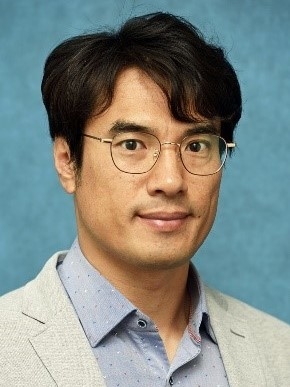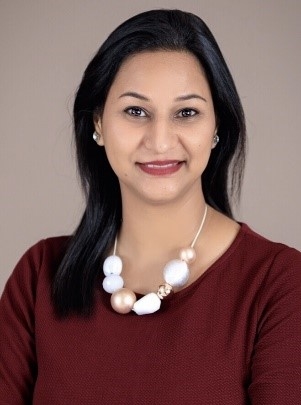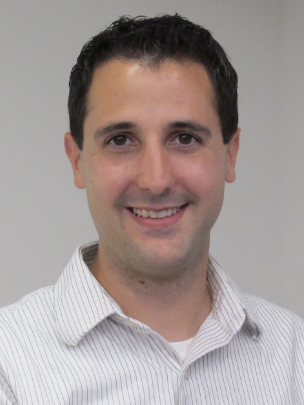Join us for the Panel Sessions at IEEE SENSORS 2020!
Virtual conference; reduced rates; students $15; register here
Topic: Imaging and Privacy
Date/Time: October 26, 2020 at 15:30 UTC+1
Description: Increasingly cameras and image processing are being used to monitor people in public areas. This can be used for security and also, with COVID-19, IR imaging is used to detect fever. Cameras on roads use number plate recognition and can also recognise those in the front seat. These technologies can be used to make us safer. However, there are privacy issues. This means that there need to be sufficient safe guides to ensure that the gathered information is not misused.
Prologue: This COVID-19 panel session follows the Keynote Address (Tuesday, October 26, 2020; 14:30 UCT+1) by Prof. Dr. Albert Theuwissen of TU Delft and Harvest Imaging entitled "Deep-trench isolation: the holy grail for image sensors."
Propositions:
1. We should use every technology we have for monitoring, even if this seems to be an infringement of privacy. Images should be stored and used at a later date, for whatever reason.
2. The more cameras we have the safer we are.
3. Privacy is upmost. We should have less cameras on the streets. Images should only be taken when absolutely necessary and destroyed directly if nothing is found.
4. Medical images should be made available to insurance companies.
5. If we combine IR and optical cameras with face recognition, we can have people tracing. This will make it easier to track criminals. This would make us safer, but is this an infringement of privacy?
6. If we have the chance to implant IR sensors into people to enhance their night vision, we should do so.
7. Monitoring all cars on the road makes it easier to track criminals and stolen cars. Should be do this?
8. Sensitive medical data needs to be stored on off-line machines, to keep them safe from hackers.
9. Government collected images and metadata should be made publicly available.
10. Images and metadata posted onto social media sites should be viewed with high privacy? Should users have control over any 3rd party access and disposal?
Meet the Panelists
Presenting LIVE via Zoom!
Panel Moderator
Chris Roberts
Panelists
Christos Strydis
Fred Streefland
Marc de Vries
Topic: Sensor Innovations for Defeating COVID-19
Date/Time: October 27, 2020 at 1:30 GMT (9:30 EDT)
Description: The COVID-19 pandemic has sparked world-wide interest in methods and devices for diagnosis and treatment. Many new testing methods have been established. Federal programs as well as both large and small companies have made significant contributions. The reliability and effectiveness of COVID-19 testing programs have achieved mixed levels around the world. Innovative new practices and technologies are needed to defeat COVID-19. Security, privacy, and ethical use of data is paramount. The panelists will bring forth example platforms that show great promise. With this session, we hope to reach a large, international audience that will virtually participate in a lively exchange of important ideas as we conquer this pandemic together.
Prologue: This COVID-19 panel session follows the Keynote Address (Tuesday, October 27, 2020; 8:30 AM EDT) by Dr. An-Suei Yang of Academia Sinica in Taiwan entitled “Developing anti-SARS-CoV-2 nucleocapsid protein antibodies with phage-displayed synthetic antibody libraries designed with computational methods.”
Meet the Panelists
Presenting LIVE via Zoom!
Panel Moderator
Frances Ligler, DPhil, DSc
Keynote Speaker
An-Suei Yang, PhD
Effectiveness of Coronavirus Screenings
Meera Viswanathan, PhD
Sensor Innovations
M. Allen Northrup, PhD
Andrea Varsavsky, PhD
Vik Kheterpal, MD
Chris Myatt PhD
Topic: 3D Printed Sensors: Opportunities And Challenges
Date/Time: October 28, 2020 at 15:30 Rotterdam (9:30 AM Eastern USA, 7:30 AM Mountain USA)
Description: 3D printing has been historically relegated to fabricating conceptual prototypes; however, increasingly, research is focusing on fabricating functional end-use products including sensors. For 3D printing to be fully leveraged, sensors need to be integrated into the complex geometries made possible by 3D printing (i.e. custom shoes, lightweight latticed airplane parts, etc.), but will in many cases, the sensors will be required to be directly fabricated with 3D printing to enable new functionality with microfluidics and spatially-varying material compositions.
Prologue: This 3D Printed Sensors panel session follows the Keynote Address (Wednesday, October 28, 2020; 14:30 Rotterdam, 8:30 AM Eastern USA, 6:30 AM Mountain USA) by Dr. Eric MacDonald of the University of Texas at El Paso entitled “Progress in Multi-Functional 3D Printing.”
Meet the Panelists
Presenting LIVE via Zoom!








.jpg)

.jpg)
.jpg)






